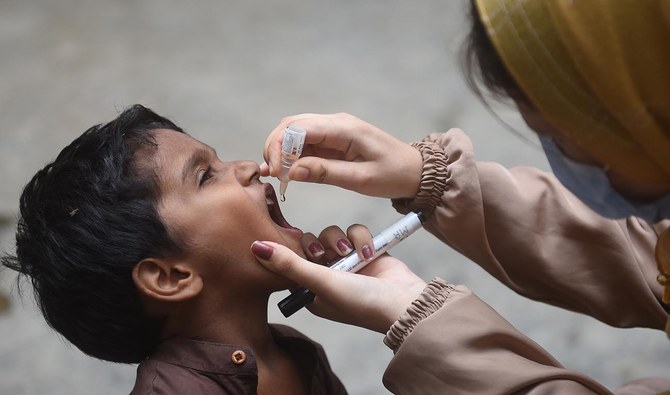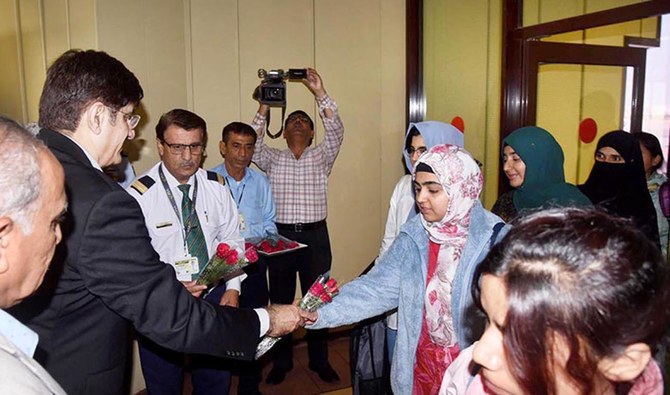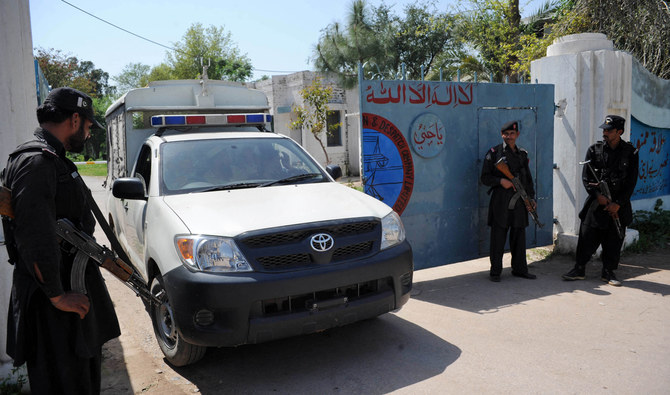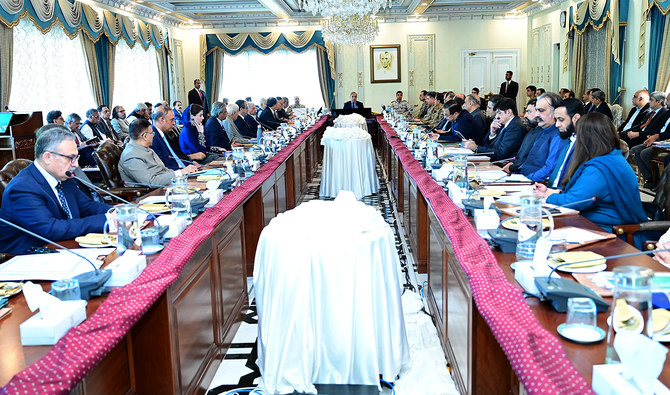ISLAMABAD: A Pakistani court on Wednesday instructed the country’s premier border control and crime investigation agency not to harass people while ordering it to remove the names of the top advisers of former prime minister Imran Khan from a no-fly list.
The Federal Investigation Agency (FIA) had placed the names of six of Khan’s close aides, including his former advisers on accountability and political communication, Shahzad Akbar and Shahbaz Gill, respectively, on its “stop list” after the previous administration was brought down by its rivals through a no-confidence vote.
The Islamabad High Court (IHC), however, suspended the FIA orders to stop these individuals from flying abroad after a petition was filed which requested the court to lift the restriction.
“This is a serious matter,” the IHC Chief Justice Athar Minallah was quoted by Geo News. “The court will never allow action based on vengeance [against former government officials].”
A senior FIA official present at the court said the agency had received the IHC instruction to remove the names of the Pakistan Tehreek-e-Insaf (PTI) leaders on Tuesday night while assuring the court that the order would be followed in letter and spirit.
The FIA’s stop list carries the name of people who are not allowed to fly out of the country. It is different from the exit control list which requires more elaborate procedures and time to put an individual’s name on it.
SOCIAL MEDIA ACTIVISTS
The former planning minister in the PTI administration, Asad Umar, also announced on Tuesday that his party had prepared a petition against what he called the “harassment” of pro-PTI social media activists and supporters which would be filed in the high courts.
Umar’s statement came as Pakistani media widely reported that the Federal Investigation Agency (FIA) had made arrests as part of a crackdown on Tuesday on social media activists that it believed were involved in an organized online campaign against institutions, especially the army.
“Petition challenging the harassment of PTI social media activists has been finalized and will be filed in high courts tomorrow (Wednesday) morning,” Umar said in a tweet on Tuesday.
The FIA counterterrorism wing reportedly sprang into action this week after a “vilification drive” against the army chief was launched on social networking websites following Khan’s ouster on April 10 in a no-confidence vote spearheaded by a joint opposition in the National Assembly.
Khan has repeatedly said the opposition campaign to oust him was a “foreign conspiracy” orchestrated by the US. Both Khan and his supporters have expressed disappointment that the military and army chief General Qamar Javed Bajwa did not support him against the alleged foreign plot and block his ouster.
Since Khan’s ouster on Sunday, top trending hashtags on Twitter have targeted the army, the judiciary and the new government, with tweets using those hashtags soaring past 4.3 million by Wednesday. One hashtag that remained the top trend in Pakistan for three days was #BajwaSurrender.
On Tuesday, the Pakistan army also commented on the online hate campaign after a meeting of formation commanders: “The forum took note of the recent propaganda campaign by some quarters to malign Pakistan Army and create division between the institution and society.”
“We have arrested some eight suspects in connection with a social media campaign against the army and the judiciary from different parts of Punjab, including Lahore, Multan, Faisalabad and Gujrat. More arrests are expected in the coming days,” an FIA official told Pakistan’s Dawn newspaper.
“One of the arrested suspects has 22 fake accounts on social media targeting the army and judiciary,” the official said, adding that the FIA had been provided by intelligence agencies with a list of 50 people allegedly behind the smear campaign.
On Sunday, the house of Khan’s focal person on digital media, Dr. Arsalan Khalid, was raided in Lahore by plainclothes officers, who took away a laptop and some mobile phones. Khalid, whose name has been placed on a no-fly list, is reportedly in hiding to evade arrest.
















